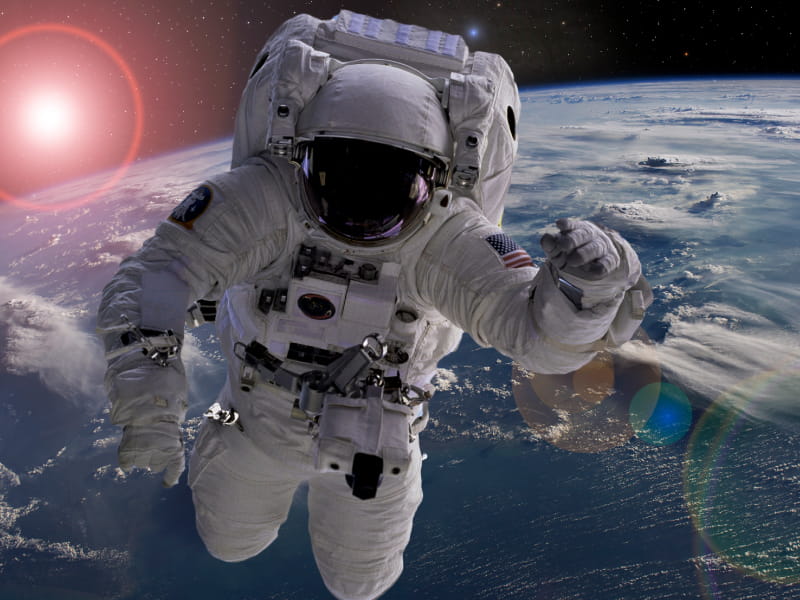A study of fainting astronauts could provide help for the earthbound, too
By American Heart Association News

Space travel might look like fun, but it turns out there's a price to pay for all that floating around without gravity: Astronauts often pass out when they return. But a new study shows exercising in space and receiving IV fluid after landing appears to alleviate the problem, and researchers say their findings have the potential to help people who never leave terra firma.
"One of the biggest problems since the inception of the manned space program has been that astronauts have fainted when they came down to Earth," Dr. Benjamin Levine, the study's senior author, said in a news release. The research was published Friday in the American Heart Association's journal Circulation.
The technical term for the issue is orthostatic hypotension. That's a temporary drop in blood pressure that comes when a person stands up and blood rushes to the feet, away from the brain. The related dizziness or fainting can occur after lengthy bed rest, among people with certain health disorders or, in the case of astronauts, being in a low-gravity environment. The longer the time in a gravity-free environment, the greater the risk.
"This problem has bedeviled the space program for a long time, but this condition is something ordinary people often experience as well," said Levine, a professor of exercise sciences at UT Southwestern Medical Center and director of the Institute for Exercise and Environmental Medicine at Texas Health Presbyterian Hospital in Dallas.
The study included 12 astronauts – eight men and four women – who spent about six months in space. All did endurance and resistance exercise training for up to two hours a day during spaceflight to prevent cardiovascular, bone and muscle deconditioning. They also received a saline infusion upon landing. The astronauts' blood pressure was recorded with every heartbeat over each 24-hour period before, during and after their time in space.
The astronauts' blood pressure was steady, and none experienced dizziness or fainting during routine activities 24 hours after landing. "What surprised me the most was how well the astronauts did after spending six months in space. I thought there would be frequent episodes of fainting when they returned to Earth, but they didn't have any," said Levine. "It's compelling evidence of the effectiveness of the countermeasures – the exercise regimen and fluid replenishment."
The researchers said they would like to study larger numbers of astronauts and those who spend longer than six months in space. Since all the astronauts participated in the exercise regimen and received a saline fluid infusion upon landing, researchers do not know whether the blood pressure stabilization would have occurred without those measures.
"Understanding the physiology of spaceflight can be helpful for understanding many conditions experienced by non-astronauts," Levine said. For example, the exercise program developed for the space program is already helping people with a fainting condition known as postural orthostatic tachycardia syndrome, or POTS.
"As we prepare to celebrate the 50th anniversary of the Apollo 11 moon landing," he said, "it's exciting to think of how our exploration in and of space can lead to important medical advances here on Earth."
If you have questions or comments about this story, please email [email protected].





